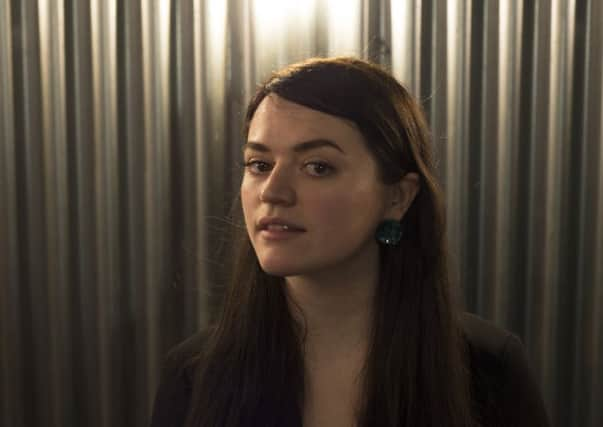Album reviews: Siobhan Wilson | Beyoncé | The Pearlfishers | Jo Mango & Friends


Siobhan Wilson: The Departure (Suffering Fools Records) ****
Beyoncé: Homecoming: The Live Album (Columbia) ***
The Pearlfishers: Love & Other Hopeless Things (Marina Records) ****
Advertisement
Hide AdAdvertisement
Hide AdJo Mango & Friends: System Hold EP (Olive Grove Records) ***
Some performers have a natural ability to entrance, to make the listener lean in, to arrest with tenderness. Siobhan Wilson has that quiet power in spades. The Elgin-born, Glasgow-based singer turned heads with her SAY Award-nominated debut album, There Are No Saints, and continues the charm offensive with this seamless follow-up, which foregrounds her pure tones and judicious vocal choices over uncluttered backing tracks using a handful of feature instruments.
The bare bones title track is as good an introduction as any, with Wilson’s longing delivery complemented by piano and synthesizer. But then recent single Marry You introduces a new coquettish indie pop direction, with Wilson swapping keyboards and cello for a fuzz-toned Gretsch guitar as she chides an ambivalent partner.
The brooding guitar features again on Unconquerable, a slow-burn duet with her pop peer Stina Tweedale of Honeyblood, the captivating, controlled Little Hawk, which builds to a stormy conclusion as Wilson shifts to rougher, tougher tones, and All Dressed Up Tonight, a beguiling gem which has been in her live set for some time. The latter recalls PJ Harvey’s Dress, retooled for the self-objectifying social media generation.
Elsewhere, she operates with delicate purpose. April is a gentle declaration of freedom of choice over melancholic cello, Stars Are Nonzero is a swooning, sonorous chanson, delivered with exquisite understatement, and Northern Clouds a fragile folk lament with fragrant overdubbed harmonies.
As before, she also puts her French language skills to use with a yearning version of 60s French pop standard, Dis, Quand Reviendras-Tu? and a demure, uncluttered cover of Serge Gainsbourg’s Ne Dis Rien. Wilson may exude the ingénue insouciance of a classic Gainsbourg vocalist but as her warning shot lyrics attest, she wouldn’t settle for his male gaze.
The concert film of Beyoncé’s two breathlessly received Homecoming headline sets at the 2018 Coachella festival is currently streaming on Netflix and is a riot of colour, commitment and choreography with a head-swimmingly huge cast of dancers and musicians corralled in proud celebration of the traditions of America’s historically black colleges and universities (HBCU).
Advertisement
Hide AdAdvertisement
Hide AdShorn of the visual impact, Homecoming: The Live Album is best approached as a companion souvenir, capturing the beefy brass blast of the marching band on Crazy In Love and the righteous reunion with Beyonce’s Destiny’s Child sisters Michelle Williams and Kelly Rowland. But it’s a protracted extravaganza – long on artfully produced mash-ups of hip-hop, funk, reggae and jazz and relatively short on songs and soul.
If the sun is out, it must be time for a new album from The Pearlfishers. Love & Other Hopeless Things is their eighth release on Frankfurt’s Marina Records, but that’s not the only mark of continuity. David Scott’s effortlessly wrought chamber pop songs, taking their lead from classic 60s and 70s songwriters, are as constant as the weather in his native Glasgow is changeable.
Scott pays tribute to that dichotomy with the urban romanticism of Sometimes It Rains In Glasgow, co-written and sung with Becci Wallace. But every day is summer in earshot of the freewheeling pop of Could Be A Street Could Be A Saint or the easy listening country ballad You’ll Miss Her When She’s Gone.
Scott’s fellow songwriting tutor and sometime collaborator Jo Mango also releases new material this week. The System Hold EP comprises four tracks of featherlight piano balladry with subtle electronic beats from ambient electronica artist Adem, which have been conceived to accompany Pervasive Punishment, the new book by criminologist Professor Fergus McNeill, and provide a chill-out meditation on themes of incarceration, monitoring and suspension of liberty. - Fiona Shepherd
CLASSICAL
Locus Iste: The Chor of St John’s College, Cambridge (Signum Classics) ****
While St John’s College Cambridge dates back to its foundation in the 16th century, the current chapel housing its famous choir, designed by Sir George Gilbert Scott, is only 150 years old. To celebrate this, a new recording – the choir’s 100th -– features a classic anthem from each decade since 1869. The disc begins with the dense double choir sonorities of William Harris’ Faire is the Heaven and ends with Parry’s grandiloquent Blest Pair of Sirens, and en route it revels in a cocktail of English cathedral music that includes Finzi’s uplifting God is gone up, the mellifluous sweep of Stanford’s Justorum animae, the simplicity of Tavener’s The Lamb, Britten’s playful Jubilate in C, some modern gems from Jonathan Dove and Ned Rorem, and the title track, Bruckner’s Locus Iste. There are some polished performances under Andrew Nethsingha’s direction, and the quirky addition of cellist and current undergraduate Laura van der Heijden in Giles Swayne’s Adam lay ybounden. - Ken Walton
JAZZ
Adam Baldych Quartet: Sacrum Profanum (ACT Music) ***
A Polish violinist straddling classical and jazz genres, Adam Baldych and his fine quartet with pianist Krzysztof Dys, bassist Michal Barańminor and drummer Dawid Fortuna explore the liturgical music that inspires him. And from the moment his violin takes a sudden swoop during the stately introduction of Thomas Tallis’s motet Spem in alium, followed by a rumble of drums, it becomes clear the music is being led into some fascinating new realms. Allegri’s Miserere is given a Debussy-like stillness by plucked violin strings, murmuring bass and the hanging delicacy of Dys’s piano, while similar interplay brings a rippling flow to a piece by the 12th-century Hildegard of Bingen. In contrast, free-form violin and percussion energise Russian composer Sofia Gubaidulina’s Concerto for Viola and Orchestra, while Baldych cuts loose, violin soaring, amid the turbulence of the 13th-century Bogurodzica, and his own Profundis develops a hymn-like theme over rangy piano and drums.. - Jim Gilchrist